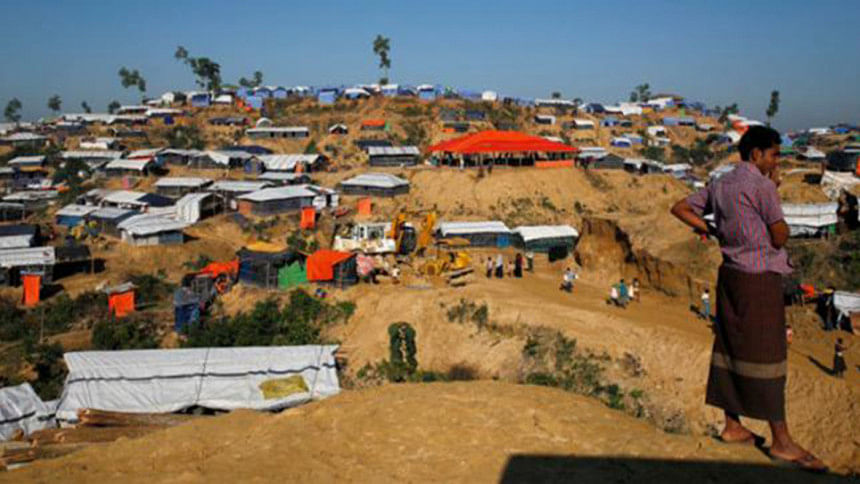Make it more transparent, cost effective

The humanitarian operations for the Rohingyas should be more transparent and cost effective as their repatriation may take longer than expected and the funding is inadequate.
Members of Cox's Bazar civil society organisations and NGOs shared the observation yesterday in a district hotel.
The programme was titled "Rohingya Response and Grand Bargain Commitment: Aid transparency and solidarity approach" and organised by Cox's Bazar CSO-NGO Forum (CCNF) and COAST Trust to discuss the 2019 Joint Response Plan (JRP) for Rohingya Humanitarian Crisis.
During the programme, Co-chair of CCNF Rezaul Karim Chowdhury said at least 1,296 expatriates were involved in the humanitarian operations and they used around 550 jeeps every day making the operation more expensive.
He suggested to build local capacity to cut cost and invest more on the Rohingyas and the host community.
According to the Inter-Sector Coordination Group (ISCG), 10 UN agencies and 68 international NGOs are involved in the refugee response. A total of 136 organisations are involved in the work..
Abu Morshed Chowdhury, another co-chair of CCNF, said the host community had largely been sidelined through the JRP talks.
"As per the JRP 2018, 25 percent of the total fund was supposed to be spent on the host community but there is no clue on how much financial assistance has been given to them," he said.
The lack of coordination among local NGOs, local administration and international NGOs should be addressed properly, he added.
"All the stakeholders need to have a clear understanding of what is happening and how the problems can be addressed effectively. This requires regular interactions among themselves," Morshed said.
The JRP of 2018 appealed for $951 million financial assistance for the Rohingyas and host community. However, $682 million, which is 72 percent of the expected amount, was received.
Addressing the dialogue as chief guest, Refugee Rehabilitation and Repatriation Commissioner (RRRC) Abul Kalam said Rohingyas need to be protected until their repatriation but the resources for it are limited.
He suggested that the aid agencies to have an institutional mechanism to train locals for human resources improvement.
Anita Kattakuzhy of Oxfam International said there was limited understanding on the Grand Bargain among UN agencies and international NGOs including Red Cross and the governments.
"This lacking needs to be addressed," she said.
She also suggested that the ISCG, UN and INGOs to sit together and see how they can meet the demands of the Grand Bargain.
Annika Saudlund, senior coordinator of ISCG, said there was a lot of improvements in the Rohingya situation since the beginning.
Rohingya children's vaccination coverage went up to 89 percent from 30 percent. The refugees have better shelters and healthcare services now, she added.
Annika assured the JRP 2019 will incorporate the suggestions made by the local NGOs and civil society groups regarding capacity building of locals and cost effectiveness.
Around 750,000 Rohingyas fled military campaign in Myanmar's Rakhine State since August last year, joining 300,000 more who had fled earlier.
The refugees are now sheltered at camps in Ukhia and Teknaf upazilas of Cox's Bazar, having massive environmental, social and economic impacts in the area.

 For all latest news, follow The Daily Star's Google News channel.
For all latest news, follow The Daily Star's Google News channel. 



Comments